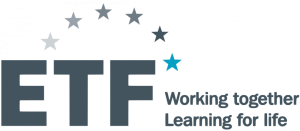
Slow learning

Why slow learning?
We live in an age of information overload, ever-accelerating technologies, and split-second learning. Citizens, learners, and workers today are required to continuously reskill, upskill, and newskill to keep up with this new pace.
The Slow Food movement paved the way for a good, clean, fair future of food. And now, we’re putting on the brakes to learn at this new tempo. It’s time to praise questions over answers. It’s time to value observations over evaluations. It’s time to prioritize self-reflection over criticism.
Lessons from the tortoise and the hare taught us what happens when we’re slow and steady. How might we slow down in this sped-up society? How might we adopt a snail-like pace to make learning more sustainable? How might we reimagine the future of learning?
What’s inside?
The collaborative book features three sections:
- Rewind: Bill of rights
In this fast-forward society, rewind and look back on what was meaningful. Discover the 10 rights every learner holds to slow down and find meaning. - Pause: What does slow learning mean to you?
Create space and breathe. Sometimes a pause is all it takes to recharge our batteries. 19 authors and artists paused to reflect on what slow learning means to them. - Play: Slow tools
With renewed energy, we can play. We can create learning pathways, make meaningful connections, and, finally, grow. Find 10 ways to experiment with slow learning.

“Per me, lavoro è respiro.”
These were the wise words of a master violin maker in Cremona, Italy when asked to describe her profession at the ITCILO Learning Innovation Programme’s study visit on 11 April 2022. Not many people can describe their work as a breath of fresh air or a therapeutic release, yet violinmaking proves to be one of the few 400-year-old crafts that still provides this respite. Here began our deep dive into slow learning.
On 16 September 2022, we gathered a group of more than 15 curious learners, trainers, and slow advocates to brainstorm what slowing down means for learning and eventually write their own interpretations. In parallel, with our partners at Posterheroes, we launched the global “Mindful or mind full? Shifting the learning paradigm” poster competition asking the creative community to visually express their vision of slow learning.
What follows is the result of this literary and visual journey
In collaboration with
